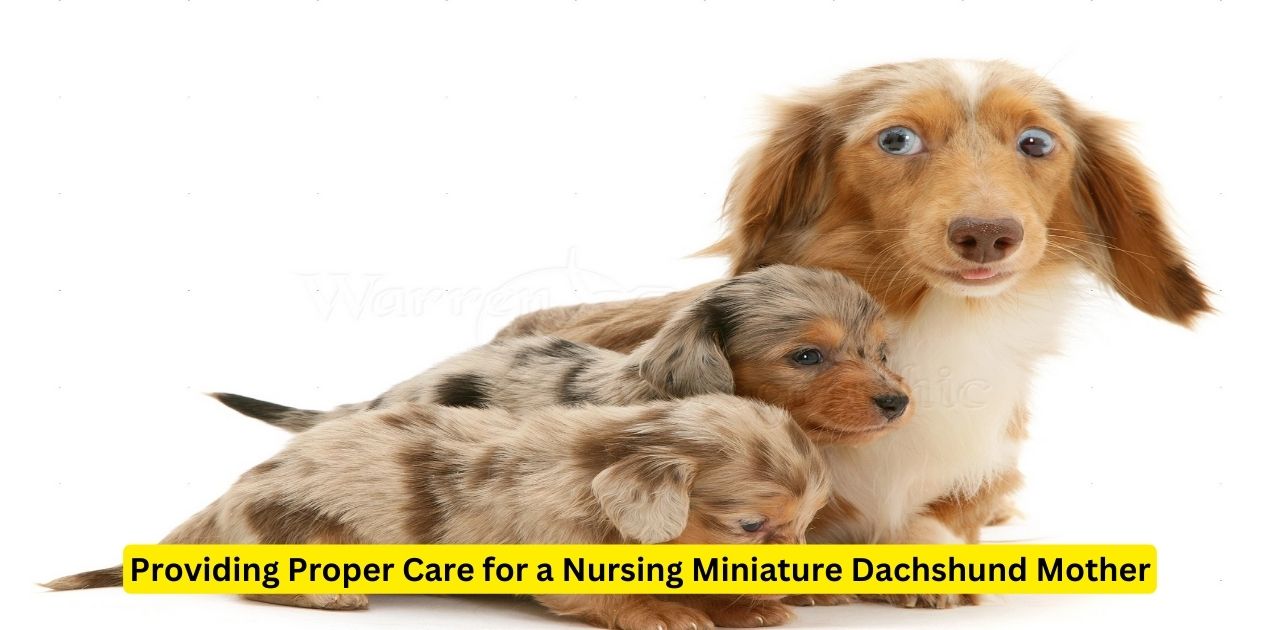Little dachshunds are one of the most famous little canine varieties. Their cute size, energetic nature, and loyalty make them excellent family pets.
A common question for prospective miniature dachshund owners is how many puppies a dachshund can have in a litter. The answer depends on several factors.
Litter Size Range for Miniature Dachshunds
The average litter size for miniature dachshunds ranges from 1 to 5 puppies. However, litters outside of this range are not uncommon. Some critical influences on litter size include:
- The mother’s size and age – Miniature dachshund mothers that are larger and more mature tend to have larger litters. First-time mothers often have smaller litters.
- Genetics – Some miniature dachshund bloodlines are known for producing larger litters than others. The genetics of both parents play a role.
- Timing of breeding – Breeding too early or late in the heat cycle can result in smaller litters. Correctly timing breeding helps maximize litter size.
- Health of parents – Miniature dachshunds in ideal health and condition are more likely to produce larger, healthier litters.
While individual litters may vary, responsible miniature dachshund breeders aim for moderate, healthy litter sizes to ensure the best outcomes for mothers and puppies. Litter size should never be pursued at the expense of health.
Why Litter Size Varies
There are several reasons why miniature-dachshund litter size can vary so much:
First, the number of eggs the mother releases during ovulation can range from 1 to 12. More released eggs means more potential for fertilization and embryos.
Additionally, not all fertilized eggs fully develop into puppies. Some may not be correctly implanted in the uterus. Others may be reabsorbed later in pregnancy. These factors cause puppy counts at birth to differ from initial egg counts.
Finally, the size of a dachshund’s uterus also impacts litter size. While miniature-dachshunds can physically give birth to up to 8 puppies, the safest litters are 4-5 puppies for their smaller builds. Larger litters may put stress on the mother.
Understanding the critical contributors to litter size helps breeders better plan for healthy, manageable miniature dachshund litters. While size varies, responsible practices promote positive outcomes.
Typical Growth Cycle for Miniature Dachshund Litters
Once born, miniature-dachshund puppies follow a typical growth cycle:
- 0-2 weeks:Neonatal period. Puppies are blind, deaf, and entirely dependent on their mothers.
- 3-12 weeks: Transition period. Puppies’ senses develop, interact with litter mates, and begin weaning.
- 3-6 months: Socialization period. Puppies are ready for new homes. Their personalities develop rapidly with proper training and exposure.
- Six months to 1 year: Adolescence. Puppies reach sexual maturity and adult height/weight. Training continues to reinforce good behaviors.
- 1-2 years – Maturity: Miniature dachshunds fill out and mentally mature. They are considered adults.
Knowing these developmental stages helps owners understand the changing needs of growing miniature dachshund puppies. With good care, socialization, training, and nutrition, litters mature into well-adjusted adult dogs.
Preparing for a Miniature Dachshund Litter
Prospective miniature-dachshund owners can take steps to prepare for a new litter:
- Research reputable breeders and bloodlines are known for health and good temperament.
- Set up an appropriate whelping area several weeks before the due date.
- Puppy-proof the home and shop for food, collars, beds, and toys.
- Find a trusted veterinarian to inspect the puppies and provide wellness care.
- Contact friends, family, or a pet sitter to help with round-the-clock puppy care.
- Review training methods and puppy care tips from experts.
Bringing a new miniature-dachshund litter home is an exciting time! With plenty of preparation, owners can feel confident caring for the mother and puppies during these vital developmental weeks. Reach out to experienced breeders for guidance.
Providing Proper Care for a Nursing Miniature Dachshund Mother

When a miniature-dachshund gives birth and begins nursing, her care needs increase dramatically. Owners need to provide:
- A top-quality puppy food diet with higher protein and fat
- Around-the-clock access to fresh water
- Regular potty breaks and gentle exercise
- A clean, cozy whelping area and nesting box
- Relief from constantly nursing – allow breaks away from puppies
- Affection, praise, and extra attention from the owners
Monitoring the mother’s health post-birth and tending to her needs enables her to care for her young properly. Provide support during this demanding time.
Weaning and Supplementing Miniature Dachshund Puppies
At around 3-4 weeks old, miniature-dachshund puppies start the weaning process. During this transition:
- Provide quality puppy food softened with warm water or milk
- Allow puppies to eat from shallow dishes after nursing
- Introduce foods like cooked egg or oatmeal as they sample new textures
- Ensure puppies are gaining weight steadily and growing well
- Check for signs of dehydration or low blood sugar
- Avoid separating puppies from mom too quickly
With patience and care, owners can guide puppies through weaning. The transition allows the mother to regain strength as the puppies become less dependent on nursing.
FAQ’s
How many puppies does a Miniature Dachshund have?
- Miniature Dachshunds typically have 1 to 5 puppies.
How long is a Miniature Dachshund pregnant?
- Miniature Dachshund pregnancy lasts around 63 days.
Can a dachshund have nine puppies?
- Yes, though large litters over five puppies are less common.
How many times can you breed a dachshund?
- Responsible breeding limits dachshunds to 1-2 litters per year.
Conclusion,
How many puppies a miniature dachshund can have depends on the mother’s health, genetics, litter management, and more. While the average litter size is 1-5 puppies, responsible practices ensure moms and puppies stay safe and healthy.
With plenty of preparation and guidance from reputable breeders, owners can feel equipped to welcome a delightful miniature dachshund litter. The rewarding experience of raising these playful, devoted pups from birth to adulthood makes it all worthwhile.










